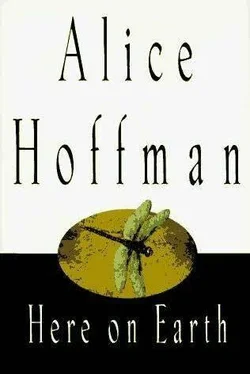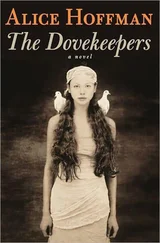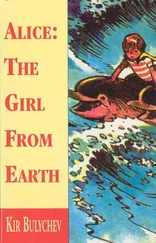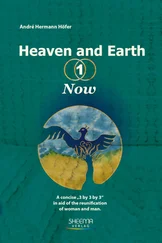Alice Hoffman - Here On Earth
Здесь есть возможность читать онлайн «Alice Hoffman - Here On Earth» весь текст электронной книги совершенно бесплатно (целиком полную версию без сокращений). В некоторых случаях можно слушать аудио, скачать через торрент в формате fb2 и присутствует краткое содержание. Жанр: Современная проза, на английском языке. Описание произведения, (предисловие) а так же отзывы посетителей доступны на портале библиотеки ЛибКат.
- Название:Here On Earth
- Автор:
- Жанр:
- Год:неизвестен
- ISBN:нет данных
- Рейтинг книги:5 / 5. Голосов: 1
-
Избранное:Добавить в избранное
- Отзывы:
-
Ваша оценка:
- 100
- 1
- 2
- 3
- 4
- 5
Here On Earth: краткое содержание, описание и аннотация
Предлагаем к чтению аннотацию, описание, краткое содержание или предисловие (зависит от того, что написал сам автор книги «Here On Earth»). Если вы не нашли необходимую информацию о книге — напишите в комментариях, мы постараемся отыскать её.
Here On Earth — читать онлайн бесплатно полную книгу (весь текст) целиком
Ниже представлен текст книги, разбитый по страницам. Система сохранения места последней прочитанной страницы, позволяет с удобством читать онлайн бесплатно книгу «Here On Earth», без необходимости каждый раз заново искать на чём Вы остановились. Поставьте закладку, и сможете в любой момент перейти на страницу, на которой закончили чтение.
Интервал:
Закладка:
Hollis went out to the Marshes for the first and last time on a Sunday afternoon that year when Hank was four, plowing through the mud in Mr. Cooper’s old pickup, which he continues to drive to this day. Now that Hollis was married to Belinda, he owned more acreage than any other man in the county; he must have wanted to gloat over his victory, but he never got the chance. He found Alan passed out on the floor. That day he brought Hank with him when he returned to Guardian Farm, and the boy has been with him ever since. People say Hollis is good to Hank, or so the Coward has heard, and that makes perfect sense. No doubt Hollis has some idea of the pain his mercy causes the Coward. No doubt at all.
There are times, of course, when the Coward wonders what their lives might have been like if he had treated Hollis, if not like a brother, then like a human being. When he starts to think about what might have been, that’s when the Coward begins to drink gin, his favorite liquid in all the world. So transparent and empty, just like the rest of his life. The one remnant of a schedule which remains in his life is his Friday routine, for that is the day when he takes the single journey that matters to him-across the Marshes, down Route 22, to the liquor store on the edge of town. He goes after dark, always, and all he needs to do is sign an X on the account page. It took a while, but he finally figured out why Mike Howard was letting him have all this booze on credit, when he’s never gotten paid back. Of course, he thought when it hit him. Naturally. Hollis would gladly foot the bill for arsenic as well, if that had been his pleasure.
On clear days, the Coward sits on the sagging porch of his old house and considers everything in the Marshes that could kill you, if quick suicide was what you were after. You could, for instance, eat the thin, poisonous pods of milkweed stalks or ingest the bitter leaves of the mallows. You could reach down and pluck one of the orange mushrooms that not even the ants will go near. But the end results would be nasty, and messy as well. Gin, however slow, doesn’t make you foam at the mouth like the mushrooms would. There are many ways to accomplish what the Coward’s after, but liquor is the most civilized method. In fact, it’s the last piece of civilization in his life.
At night, when people in the village are fast asleep, he still hears the sound of fire. It’s a sound from hell, all twisted and hot. You get thirsty when you hear a sound like that in your dreams. You get terribly thirsty and there’s not a damned thing you can do about it, except to take the same route every Friday and make certain not to answer your door. You never know who you’ll find out there on your own porch; it may be someone who believes it’s a righteous person’s duty to convince the Coward he has to stop drinking and turn his life around, when it’s abundantly clear he’s never going to do that. He’s here for good; for better or, more likely, for worse, all the rest of his days.
9
Since her return to Fox Hill, all March has accomplished is an orderly mess. There are currently twenty-five boxes in the kitchen, all labeled to go to the Library Association’s booth at the Harvest Fair, which is always held in the basement of Town Hall. Most of the objects March has packed, she knew by heart: The cake pans Mrs. Dale seemed to collect, dozens of them. The lace curtains, the throw pillows, the ceramic candlesticks from England. March’s father’s law books have already been donated to Deny Law School, carted there by Ken Helm, who’s been running all March’s errands, since she decided not to replace her rental car. Eight silver place settings, brought out only on holidays, have been mailed home to California, where they will most likely never be used.
Judith, who didn’t care much for jewelry, had only three good pieces: A gold necklace, which March has given to Harriet Laughton, one of Judith’s dear friends. A pair of heavy gold earrings, rarely worn, has been presented to St. Bridget’s Hospital, to be auctioned off to the highest bidder at the next fund-raising drive. The lovely, square-cut emerald Judith never took off, March now wears on her right hand. Luckily, March found the emerald in an envelope stuffed into a night table drawer she was clearing out. March studied that ring so often, as Mrs. Dale folded laundry or planted mint or tucked her in at night, that she cannot help but wonder if the emerald has affected her career choice. The jewelry she fashions is simple in design; as with this ring, the overall effect often depends on small, but perfect, stones. She favors green and blue in her work: topaz and tiny sapphires, crystals and aquamarines, Chinese jade and emeralds, of course, although none has appealed to her as much as the stone she now wears.
Today, while March works on organizing the house, Judith’s little dog sits by the window, waiting for rabbits. Each time the dog spies one, out in the orchard or calmly chewing mint by the back door, it goes completely berserk.
“Will you stop that?” March complains, because whenever the dog barks, she’s startled all over again.
Aside from the dog, the house is amazingly quiet. There’s no TV switched on, no radio, no sound of traffic. And there’s definitely no Gwen. March had expected she’d have to argue constantly with her daughter; she’d imagined Gwen would want to sleep until noon or one, when she’d rise only to throw herself in an easy chair to complain, grouse, whine, and threaten, all the while eating cookies or frozen pizza, spreading crumbs on the rug and talking about teenage suicide statistics.
None of this has happened. When March wakes in the morning, Gwen is already gone, her bed in the sewing room neatly made, her cereal dish washed and drying on the dish rack that March will have to pack up today. She’s been out for a walk, Gwen explains when she returns later in the day; she’s been running, getting herself in shape. March wouldn’t believe a word of it-Gwen is usually the most sedentary creature on earth; getting off the couch to search for the remote is often the most movement she manages to accomplish-but there’s a rosy cast to the girl’s skin when she comes back to the house, and a fine film of sweat on her forehead, all of which seems proof of her honesty.
With no distractions-no Gwen, no car, no one other than Susie calling on the phone-March should be done clearing out the house, but the work is going slowly, as if each trinket and kitchen utensil, every sweater and scarf were stuck in molasses. Now and then, March comes across some item which truly surprises her, and then she gets completely side-tracked. This morning, for instance, she found a box of matches from a restaurant called the Blue Dolphin, a small, family-run place down by Lamb’s Cove, less than ten miles away. Seeing those matches, she remembered a night nearly thirty years earlier, an evening Mrs. Dale had off, but because taking care of children is not a job that’s easily compartmentalized, as soon as Judith came home she went upstairs to check on March.
When she came to sit on the edge of March’s bed, Judith Dale smelled of garlic and cologne, a combined scent that was both lemony and pungent. She had appeared so dreamy and young that March had scrambled to her knees to get a better look. Mrs. Dale’s hair was curled, from the damp salt air at Lamb’s Cove. She’d shown March this box of matches, with its smiling dolphin logo; she’d said this restaurant had the best shrimp scampi and the most fabulous cheesecake, and some grown-up drink called a mimosa that March has had a fondness for ever since hearing its beautiful name. Now, March realizes it was love that made the menu so special, and that Mrs. Dale’s dinner partner that night was probably Bill Justice.
Читать дальшеИнтервал:
Закладка:
Похожие книги на «Here On Earth»
Представляем Вашему вниманию похожие книги на «Here On Earth» списком для выбора. Мы отобрали схожую по названию и смыслу литературу в надежде предоставить читателям больше вариантов отыскать новые, интересные, ещё непрочитанные произведения.
Обсуждение, отзывы о книге «Here On Earth» и просто собственные мнения читателей. Оставьте ваши комментарии, напишите, что Вы думаете о произведении, его смысле или главных героях. Укажите что конкретно понравилось, а что нет, и почему Вы так считаете.












